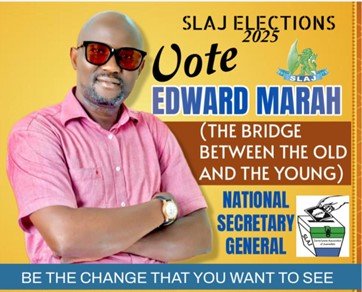The Ministry of Local Government and Community Affairs has held a stakeholder consultation with 16 Tribal Heads in the Western Area as part of the ongoing review of the Local Court Act 2011 and the reversion of local courts from the Judiciary back to the Ministry.
Giving the background to the process, the Minister of Local Government and Community Affairs, Ambassador Tamba Lamina, explained that Cabinet had mandated the Ministry to lead the reversion exercise to ensure that local courts are properly supervised under its authority rather than the Judiciary.
He clarified that by law, local courts are only mandated to exist in Sierra Leone’s 190 Chiefdoms, excluding the Western Area. However, it has come to the Ministry’s attention that some Tribal Heads have established unauthorized courts in their communities, practices that he said often lead to intimidation and extortion of residents. He further raised concern over the unlimited appointment of sub-chiefs, which has created administrative challenges.

“Even though the review and reversion process is about local courts in the Chiefdoms, the information we have received makes it necessary to also consult the Tribal Heads in the Western Area,” Minister Lamina said. He urged the leaders to freely contribute their views to help shape the process.
The Lead Consultant for the review of the Chiefs of State Act 2011 and the reversion process, Lawyer Flord Davis, walked the Tribal Heads through the progress made so far, highlighting similar consultations already held in other regions. He emphasized the importance of meaningful input from the Western Area Tribal Heads to ensure that the review is inclusive and effective.
During a PowerPoint presentation, the consultant team outlined the legal and administrative framework guiding the roles of Tribal Headsmen in the Western Area. Key references included provisions in the 1991 Constitution, Cap 78 of the Tribal Administration Act 1978, and the Tribal Administration Amendment Act of 1975. Issues such as tenure, vacancies, removal from office, limitations of authority, and the definition of tribal authority were discussed in detail.
Following the presentation, the 16 Tribal Heads were divided into four groups to deliberate on issues such as gaps in Cap 78, possible term limits for Tribal Heads, harmonisation of tribal administration with local councils and chiefs, and safeguards against abuse of power.
Closing the session, Deputy Minister Alfred Moi Jamiru commended the Tribal Heads for their contributions to peace and stability in their communities. He encouraged them to strengthen community engagement, promote women’s participation in decision-making, and maintain unity among themselves.
“The confidence reposed in you by His Excellency the President must be protected and not watered down,” the Deputy Minister stressed.
The consultation marks another step in the nationwide engagement process aimed at reforming the local court system to ensure fairness, accountability, and proper oversight.




